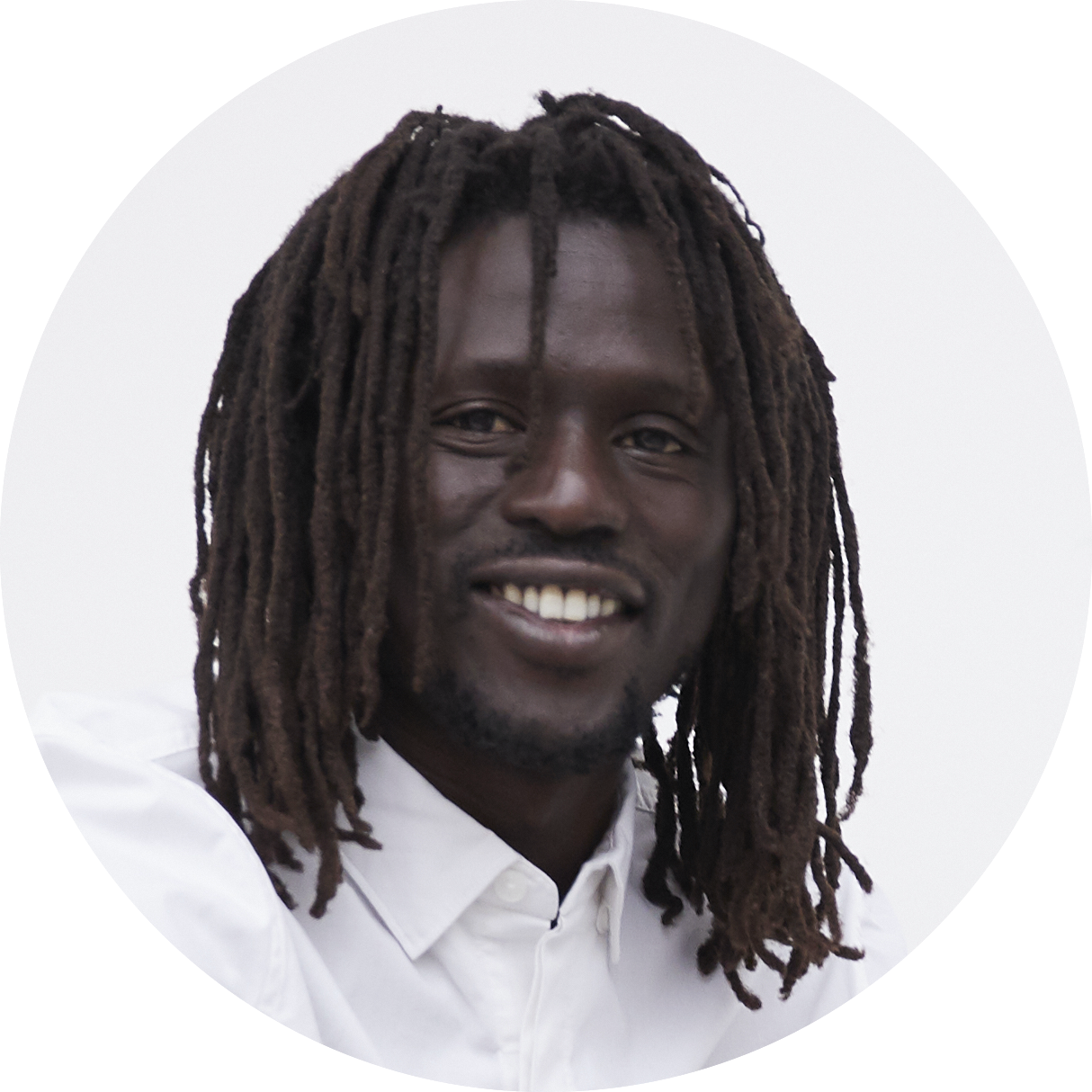5 minutes with... former child soldier and life performance coach Emmanuel Jal

Emmanuel Jal spent his early years surrounded by war as a child soldier in what is now South Sudan. Now, as an Unmind collaborator, peace activist and life performance coach, he sits down with us to talk mental health, meditation and telling his story.
“
Our lives are shaped by the stories we hear and our success depends on the stories we’re told.
Emmanuel Jal
What key things drew you to working with Unmind?

I was really impressed by the Unmind platform and all the content that you offer for businesses. Your aim to empower employees to measure, understand, and improve their mental wellbeing is very much aligned with the work I do through my wellness organisation “My Life Is Art”. I believe that our minds are our most powerful possession and the work we do often takes a lot of space in our mind. When we are given tools to better manage our minds, we can better manage our relationship with work and the challenges we may face in the workplace. The Unmind platform is a great tool for businesses to enable their employees with those tools, and I was grateful to partner with you to be featured on your amazing resource.
What does the statement "We all have mental health, all of the time" mean to you? What is your experience with your own mental health?

For me, trauma dominated my mental health, after spending my early years as a child-soldier and living in extreme poverty. I watched as a civil war took my aunties, uncles and mother and that robbed my village of its soul, and took control of my mind in the form of trauma. For some, my experiences may seem too extreme, and they might think our experiences of trauma are different, but I believe that everyone experiences their own form of trauma. When I came to the Western world I was introduced to the Western disease of “stress” which most face. And this year, that stress has been amplified with the global pandemic changing the way we live and work and making our futures seem uncertain. Stress and trauma do something similar, where they shut down the faculties of our mind, and bring something I call ‘mental poverty’. All of us experience this in our own way and all of us have different ways of managing it.
What is one way that you take care of your own mental health every day? Why is this habit so important for you?

Every morning, I meditate and this has become like medicine for me. I created my own “My Life Is Art meditation” which is based on the principles that have been important to me and shaped my mental health journey. One of these is gratitude, and every time I meditate I think about all the things I’m grateful for and hold them in my left hand. Then I think of all my challenges and hold them in my right hand. At the end, I bring my hands together and focus on the gratitude replacing my challenges. This practice keeps me grounded and reminds me that I have more blessings in my life than challenges. Meditation is an essential part of my daily routine, and although I don’t always feel in the mood for it, I do it every day as I know it’s key to managing my own mental health.
What book would you say has had the biggest positive impact on your life? Why?

Leading with Questions by Michael J. Marquardt has made me think about my own leadership and communication style. As leaders, we often don’t ask enough questions and get stuck in telling people what to do. When you pause, and ask others what they think and what ideas they have, you create a healthier working dynamic and through this leadership style, I’ve seen huge benefits for my businesses. Questions can also help in conflicts or disagreements, as long as those questions come from a place of genuine understanding. There is a lot to learn about questions and this book dives into this topic in more detail. I highly recommend it, regardless of whether you’re in a leadership role or not, as it gives you an opportunity to reflect on your own questioning style and consider how you can use questions as a way to open up lines of communication within your businesses.
If you could encapsulate the key piece of wisdom you've acquired over your life in regards to your own mental wellbeing, what would that be?

Our lives are shaped by the stories we hear and our success depends on the stories we’re told.
Storytelling has been an important tool for me to manage my own mental wellbeing. When I started telling my story, it helped me heal and helped facilitate healing of others which keeps me grounded in my purpose. The stories that we hear are important to mental wellbeing – I encourage people to take in positive content, at least 15 minutes-1 hour per day. I also ask people about the stories they have created about themselves. Often, we have to rewrite a lot of those stories and reshape the misconceptions we often have about ourselves and our futures.
To find out more about Emmanuel's story, check out his Fireside on the Unmind platform here, or take a look at his website.
Like this series? Check out some of our other collaborator Q&As:













